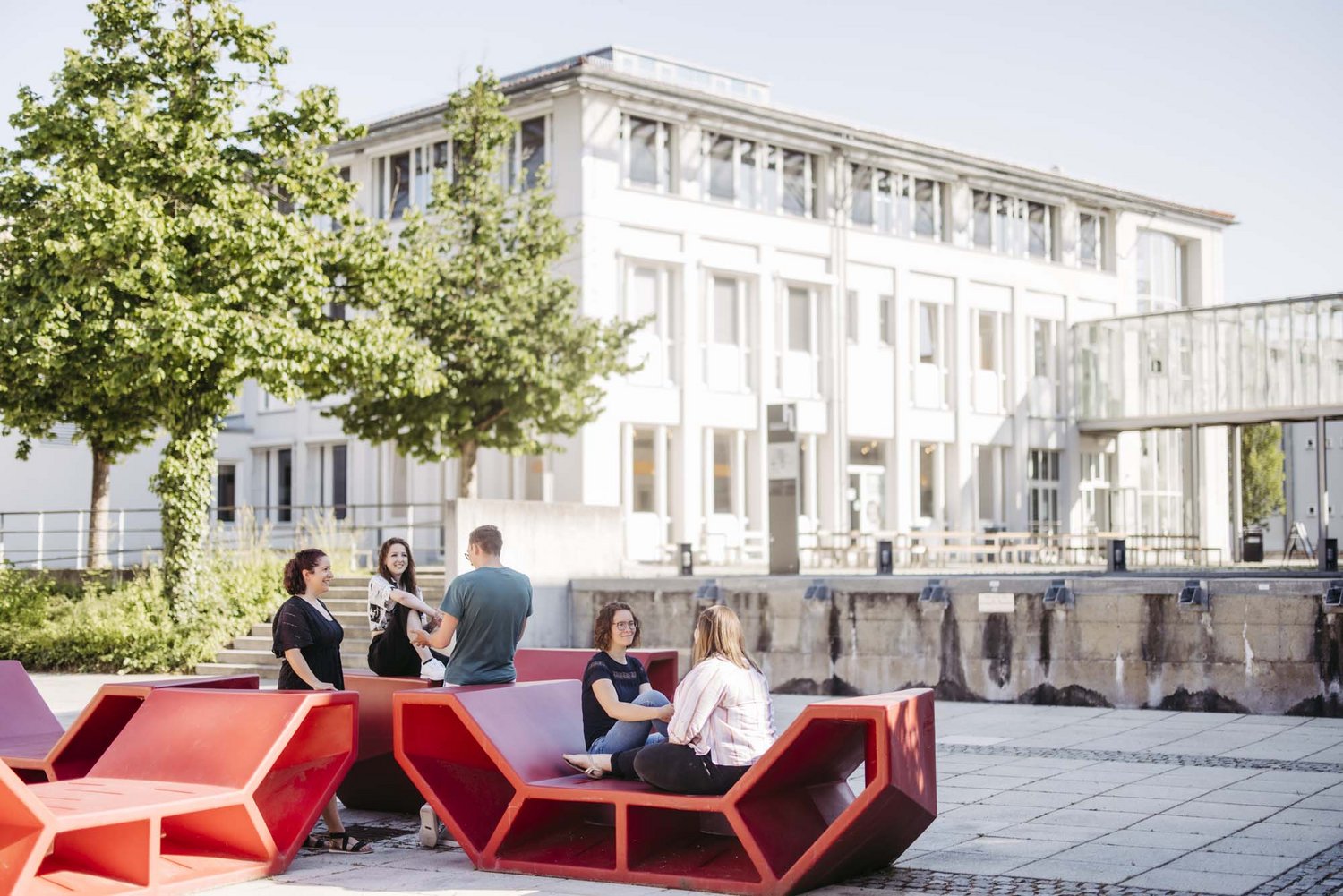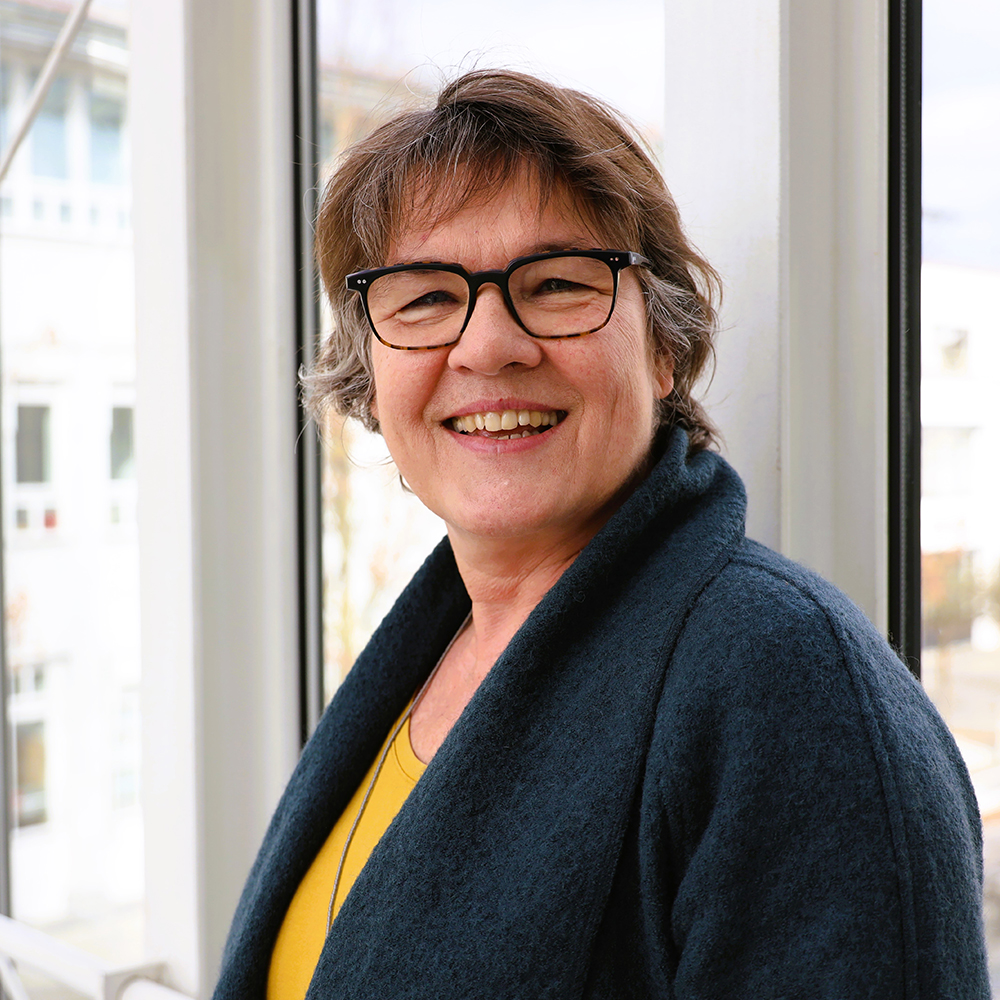
Social work in child and youth services
Bachelor
The aim of the undergraduate Bachelor's degree programme in Social Work in Child and Youth Welfare is to enable students to act independently and professionally in various fields of social work practice - in particular in the fields of child and youth welfare - on the basis of scientific theories and well-founded methods of action.
| Start | Winter semester |
|---|---|
| Admission Criteria | Unrestricted admission |
| Application period | 15.04.2025 - 15.07.2025 |
| Study format | Full time |
| Study cost | None (only semester fee) |
| Normal duration | 7 Semester |
| Language | German |
| ECTS | 210 |
The study programme
The aim of the undergraduate Bachelor's degree programme in Social Work in Child and Youth Welfare is to enable students to act professionally in social work, particularly in the diverse practical fields of child and youth welfare. The degree programme teaches and applies scientific theories and methods of action. The degree programme enables systematic and science-based action in the field.
Contents and course of study
From the third semester onwards, specialisation takes place in the field of child and youth welfare. Until then, basic theories and fields of action as well as the legal foundations of social work are learnt.
Learn moreProspects after graduation
After completing a Bachelor's degree in Social Work in Child and Youth Welfare, many career opportunities open up. Potential fields of work include youth centres, youth welfare offices, advice centres and other facilities for children and young people. Supporting activities for families or tasks in early intervention and work with traumatised young people can be undertaken. There is also the option of a career in research, teaching or as an independent counsellor.

Study requirements
The degree programme and practical semester promote actions based on human rights and ethical principles. These include the rights to physical integrity, dignity and personal integrity as well as self-determination, participation, involvement and diversity. Skills such as empathy, self-reflection and communication skills as well as the ability to work in a team are also strengthened during the degree programme in order to be able to work successfully in the practical fields of child and youth welfare.
Learn moreInformation for students
Here students receive information about the documents relevant to them, such as the module handbook and the study and examination schedule.
learn moreIt is important to distinguish whether you are applying for a Bachelor's or Master's degree programme. There is also a difference as to whether the Bachelor's degree programme is admission-free or admission-restricted (with NC). Further information on the application and admission procedure can be found here.
The university determines the number of places to be allocated for individual degree programmes. From the applications received for places on degree programmes with restricted admission, the best students from various groups (Abitur, Fachabitur, master's degree, second degree, etc.) are admitted according to a ranking list until the number of places to be allocated is reached. The NC (Nurmerus Clausus, average grade for admission) is calculated each year from the average grade of the last university place awarded. Experience shows that the NC fluctuates considerably from year to year when there are only a few study places to be allocated and cannot be predicted in advance of admission. It is therefore not the grade point average required for admission that is specified in advance, but the number of study places to be allocated.
Depending on whether you have already studied something similar or the same degree programme elsewhere, you either apply for a higher semester or start a new degree programme in the first semester. If you apply for a higher semester, the creditable examination results in particular determine whether you can be admitted. More information here.
If you can prove that you have already acquired comparable skills - either through professional experience or as part of a previous degree programme - you can apply to have these recognised. The application must be submitted to the Student Service Centre and will then be reviewed by the relevant examination board. You will be informed of the decision after approx. 2-3 weeks. The application can be found here.
Once you have registered in the applicant portal and uploaded your documents, you will be kept up to date on the progress of your application. If something is missing or incorrect, which would lead to exclusion from the award procedure, you will also be notified there. The letter of admission is also available for download there. Click here to go to the applicant portal.
As part of the application process, if you accept the study place offer, you must contact your health insurance company and inform them that you intend to start studying at Landshut University of Applied Sciences. The health insurance company will then confirm directly to us via a digital message that health insurance cover is in place. If you have private health insurance, you must consult a statutory health insurance company and request confirmation of exemption. This will also be reported to us digitally. Information on health insurance during your studies can be found here.
By paying the student union fee, which must be paid before starting your studies and then once per semester, you acquire a semester ticket. This semester ticket entitles you to use local public transport in the area covered by the Landshut Transport Association (LAVV). The semester ticket is printed on the student ID card and must be presented without being asked before travelling. Details can be found here.
The student ID card is sent to you by post before you start your degree programme. You can use your student ID to pay in the canteen or use the 24-hour library, for example. The semester ticket is also printed on the student ID card. The student ID card must be revalidated for the following semester after re-registration. You can find out more here.
For all degree programmes that are not part of the continuing education academy, there are generally no tuition fees. Irrespective of this, the student union fee must be paid once per semester. This solidarity contribution provides financial support for the canteen or the student halls of residence of the Studentenwerk Niederbayern/Oberpfalz, for example. The semester ticket is also included. Further information here.
We would like to invite all prospective students to our information events on campus! In addition to the study information day, there are also smaller online and face-to-face events such as the university podcast or the applicant day and much more, where you can get detailed information about degree programmes and Landshut University of Applied Sciences. Our counselling services can also be used for personal consultations at any time.
At the start of their studies, our first-year students are warmly welcomed and provided with all the necessary information. You will be given an introduction to how the university platforms work, the lecture timetable, the Studium Generale and much more!
BAföG is administered by the Studentenwerk Niederbayern/Oberpfalz. This is located in Regensburg. You can either go there directly or contact the BAföG counselling centre of the Studentenwerk N/O in the E building.
Landshut University of Applied Sciences and the Studentenwerk Niederbayern/Oberpfalz offer students free psychological counselling in difficult life situations. You are welcome to get in touch with the contact persons at any time.
Attractive companies advertise study-related jobs such as internships, student traineeships and entry-level positions on the university job exchange. In addition, the part-time job exchange offers a variety of mini and holiday jobs to finance your studies.
The Studentenwerk Niederbayern/Oberpfalz currently manages three public student halls of residence in the immediate vicinity of the university. There are also six other halls of residence run by private organisations. More information here.






